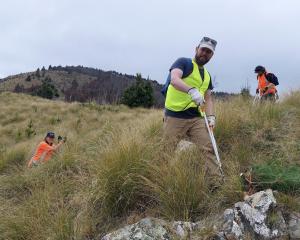A proposal to charge international anglers more to fish in some of the world's best recreational fisheries does not go far enough, Otago Fish and Game councillor Ray Grubb says.
The Department of Conservation and the New Zealand Fish and Game Council are consulting the public on a proposal to establish a non-resident sports-fishing licence and charge non-resident anglers a higher fee.
A higher charge would reflect the limited contribution of international anglers to the management of New Zealand's high-quality fisheries, which were expensive to manage, and their more intensive use of them.
The 2007-08 national angler survey showed back-country fisheries attracted 51% of non-resident anglers compared with 16.7% of resident anglers.
It was suggested the licence be a whole-season licence costing two to three times the current annual fee, which would provide greater resources to manage New Zealand's high-value fisheries more intensively. It was not designed to target the average tourist who fished casually while in the country.
Mr Grubb, who was a fishing guide for 17 years, said he believed New Zealand's low angling fee compared with other countries such as the United Kingdom and United States was a handicap, as the fishery was underrated as a result.
"It's a perception of value. Low licence fees are usually in poor fisheries where they have not respected the environment. We have the best trout fishery in the world."
International anglers were used to paying higher fees in other fisheries, he said. In the US, non-residents had to buy a licence for each state they fished in.
"They expect to do it, are used to doing it. Everyone I know, thousands of anglers, would support this."
The proposal's focus on prime back-country fishing needed to be abandoned and an international licence applied to all fisheries, he said.
"New Zealanders pay for all of it through their taxes and rates, so making a fee for just the back country is silly."
Instead, the licence should be for the standard period anglers came to fish here - three to four weeks - and the fee should be three to four times higher than New Zealanders paid, Mr Grubb said.
"In the three weeks they stay here they'll fish most days. That is much more than most New Zealanders, who'll fish five to 10 days in a season."
The discussion document is open for public submission until October 28.












